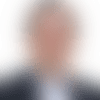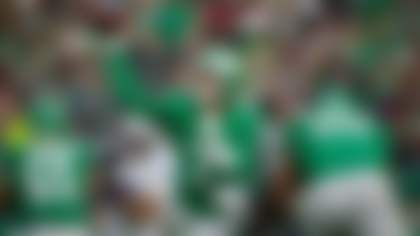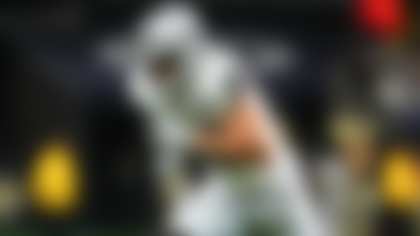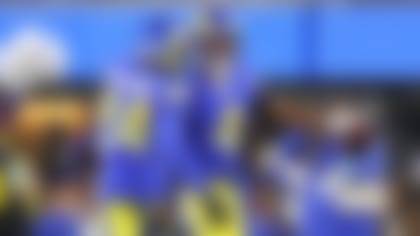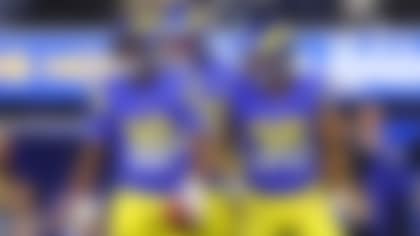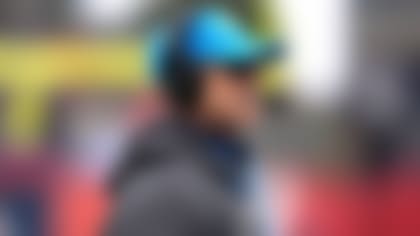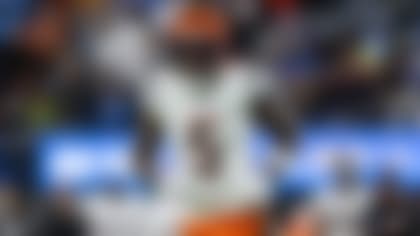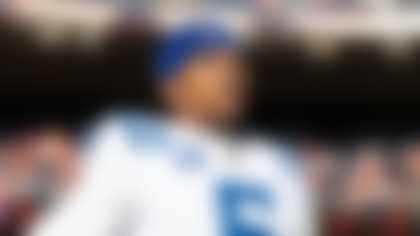No regrets, no apologies.
Dallas Cowboys coach Mike McCarthy is standing by every aspect of his team's end-game -- check that, end-season -- handling of a 23-17 home playoff loss to the San Francisco 49ers on Sunday.
From the play call of a quarterback draw with 14 seconds to play and no timeouts, to quarterback Dak Prescott's decision to give the ball to center Tyler Biadasz instead of umpire Ramon George, McCarthy explained and defended his staff and players. By rule, George had to touch the ball before it could be snapped, and he was somewhat obstructed by the Cowboys' quickly-gathered formation to spike the ball. It was only a momentary delay, but a moment was all that separated the clock expiring from the ensuing snap -- time ran out on the spike call, ending the game and denying the Cowboys a final shot at the end zone from the 49ers' 24-yard line.
"We had great confidence in that situation because we were just trying to get inside the 30-yard line to change the play-call for the final play. So, it's the right call based on our preparation," McCarthy said of calling a draw play, which gave Dallas virtually no chance of finishing the play out of bounds. "It's a 13-second threshold is the call. So, that 14 seconds, in my view, that's the right call."
Bolstering McCarthy's argument was the 49ers' defensive alignment, which placed three players along both sidelines, with a deep safety in the middle of the field, to help ensure an in-bounds tackle. As for his team's inability to get the snap off for a spike, McCarthy disputed the suggestion that Prescott should have handed the ball to George instead of his center.
"The center can spot the ball. The receiver can spot the ball. So (the opinion) of you can't spot the ball is not correct. So, the center can spot the ball. Our guys are trained to spot the ball exactly how the referee spots the ball. … Obviously, the umpire has to come in and all he has to do is touch it."
McCarthy added: "You're in a 3, 2, 1 situation, you snap the ball. Obviously that didn't happen, right there at that point, so as far as the training of Dak getting the ball to Tyler (Biadasz), Tyler getting it down on the hashmark that part was intact. So obviously we gotta factor in what happened there, at the end of that play because we've repped it, like I said, there's training that's gone into that situation."
That argument is consistent with Prescott's remark after the game about the disappointing finish; he did what he'd been coached to do.
"We've practiced it," Prescott said. "You hand it to the center. The umpire, all he has to do is usually come in and tap the ball."
McCarthy clarified one thing. He said he talked to Prescott and instructed him to cut the play to a 10-yard run in future instances. Prescott rushed for 17 yards on Sunday's final play.
It's easy to lament what might have happened had the Cowboys been able to throw a pass into the end zone to finish the game, but Dallas lost for far more reasons than clock management. There were a playoff-record tying 14 penalties, a stagnant rushing attack, and a Prescott interception that set up a one-play touchdown by the 49ers.
There was blame to go around.
But not, McCarthy insists, on how it ended.
